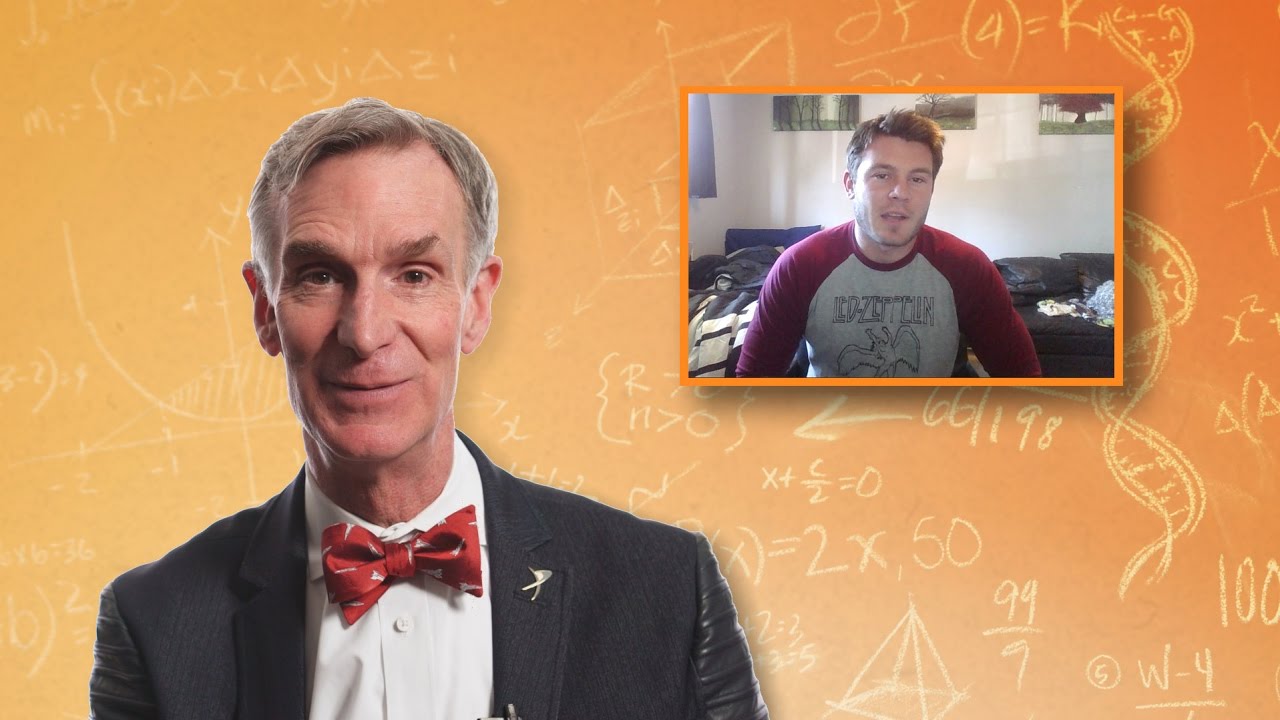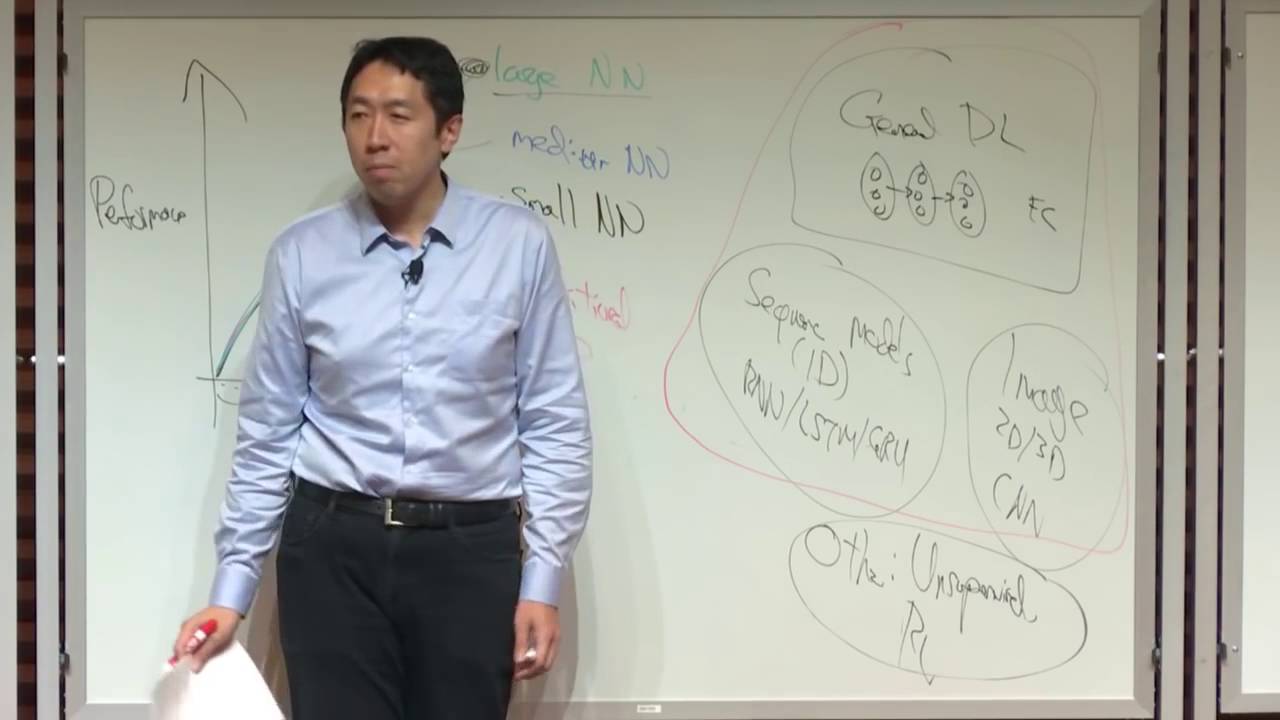Big Think
New videos DAILY: https://bigth.ink
Join Big Think Edge for exclusive video lessons from top thinkers and doers: https://bigth.ink/Edge
———————————————————————————-
The idea of a multiverse as we conceive of it was first mentioned by Nobel Prize-winning Austrian physicist Erwin Schrödinger in 1952, who warned a lecture hall full of people that this may “seem lunatic”, but perhaps his equations did not show mere alternative versions of history, but alternatives all happening simultaneously. For this week’s question, Austin wants to know about the multiverses paradox: if every alternate timeline happens, and anything that can happen does—somewhere—then wouldn’t there be a universe that could not support the idea of any other universe existing? All multiverse hypothesis are as yet unverified by experiments, so it’s all up in the air. But if we ever want to find out, the way to do it is by supporting space exploration, because the more we find out about the cosmos, the closer we get to knowledge about our own origins and the greater our capacity grows for multiverse experimentation.
Bill Nye’s most recent book is Unstoppable: Harnessing Science to Change the World.
———————————————————————————-
BILL NYE
Bill Nye, scientist, engineer, comedian, author, and inventor, is a man with a mission: to help foster a scientifically literate society, to help people everywhere understand and appreciate the science that makes our world work. Making science entertaining and accessible is something Bill has been doing most of his life.
In Seattle Nye began to combine his love of science with his flair for comedy, when he won the Steve Martin look-alike contest and developed dual careers as an engineer by day and a stand-up comic by night. Nye then quit his day engineering day job and made the transition to a night job as a comedy writer and performer on Seattle’s home-grown ensemble comedy show “Almost Live.” This is where “Bill Nye the Science Guy®” was born. The show appeared before Saturday Night Live and later on Comedy Central, originating at KING-TV, Seattle’s NBC affiliate.
While working on the Science Guy show, Nye won seven national Emmy Awards for writing, performing, and producing. The show won 18 Emmys in five years. In between creating the shows, he wrote five children’s books about science, including his latest title, “Bill Nye’s Great Big Book of Tiny Germs.”
Nye is the host of three currently-running television series. “The 100 Greatest Discoveries” airs on the Science Channel. “The Eyes of Nye” airs on PBS stations across the country.
Bill’s latest project is hosting a show on Planet Green called “Stuff Happens.” It’s about environmentally responsible choices that consumers can make as they go about their day and their shopping. Also, you’ll see Nye in his good-natured rivalry with his neighbor Ed Begley. They compete to see who can save the most energy and produce the smallest carbon footprint. Nye has 4,000 watts of solar power and a solar-boosted hot water system. There’s also the low water use garden and underground watering system. It’s fun for him; he’s an engineer with an energy conservation hobby.
Nye is currently the Executive Director of The Planetary Society, the world’s largest space interest organization.
———————————————————————————-
TRANSCRIPT:
Austin: My name is Austin Bogner and I have a question about the multiverse. So if there does exist an infinite amount of universes, then mathematically there’s a 100 percent chance that there exists at least one universe out there in the multiverse that cannot support the idea of any other universe existing except for that one particular universe. And my question is: doesn’t this create a paradox in the multi-universe idea?
Bill Nye: Austin, you are asking a fabulous question about multiverses. The answer for me is: clearly I don’t know. This is to say, is it just a question of definition, that there is one universe and within it are subverses or multiverses? Or is it actually: everything that we know and see and can detect is nominally replicated at some other dimension or some other space beyond space that we are only able to imagine?
And the only reason we think that they might exist, these multiverses beyond space time, is because there’s no reason to exclude them. Like there’s no reason they couldn’t exist.
These are wonderful questions. I’ve seen many talks on this. I’ve gone to symposia about this. And I don’t know the answer.
However, we have the Spitzer space telescope. We have Hubble space telescope. We’re going to have James Webb space te…
For the full transcript, check out https://bigthink.com/videos/hey-bill-nye-is-the-multiverse-a-paradoxical-idea
Source




The multiverse theory is really redundant
The multiverse theory is really redundant
The analogy my professor used is this:
Imagine a violin playing a chord. If you make a recording of it, you can put the chord through Fourier analysis and discover that it's actually several notes being played at once – let's say it's three notes in this case. From an analytical perspective, then, you could say that it's not actually one violin, it's three identical violins, each playing a separate note. It doesn't affect the math in any way, and in some cases it's actually helpful to model it as three violins, because it makes your calculations easier. But it's ridiculous to say that because of that, the other two violins must actually exist somewhere.
Quantum multiverse theory is the same: it's just a helpful model for particle statistics. If a particle could have two different spins (for instance), quantum mechanics says that it has both at once until another particle observes it. ("observes" is the quantum mechanics way of saying "interacts with." It has nothing to do with a person looking at it) But the math for that sort of superposition is very complicated, so it's simpler to say that there are two universes, one where it has each possible spin, and then predict what will happen in each of those. It doesn't mean we can actually go to those universes or use them for anything other than making the math easier.
Is it just me or are the sides of bills forehead caved in?
The answer to the man's question is yes, it does in fact create a paradox – Bill Nye here just doesn't know what to do about it.
Bill believes in talking ice cream cones, Bigfoot and Noah’s ark in the Multiverse
did anyone else see his fingers look like slenderman's
Can we test it? Considering it isn't directly observable, no.
The real paradox is that if there are near infinite alternative universes, then statistically speaking there should be near infinite where it's being manipulated (if it can be), and near infinite where it has a direct effect on the universe we're experiencing right now. So, safe to say: a) there is no multiverse, b) there are a finite amount of possibilities, c) it can't be manipulated, d) it creates a new reality every time it's manipulated, or e) it's paradoxical enough in nature that it's impossible to prove even if it does exist.
A boltzmann brain is more plausible than a multiverse or a God.
You can believe in Gods and boltzmann brains. But a weird deity at that
tl;dr
lol I don’t know
Love that he literally started with “I don’t know”! A true scientist..
It depends of people imagination.
Bill Nye has no training in this subject.
I want to live in the universe where Bill Nye's mom only stuck to anal.
no, because if there is universal LAW than those LAWS would be true to all universe's.
What will scientists do if they launch the James Webb Telescope and pear far off into the universe and see .. The Milky Way.. and Earth..?
He didn't answer the question. It's: If there is a multiverse with infinite universes in it, there isn't going to be a single one that doesn't have a multiverse. Obviously, the frame of possible universes is constrained by some parameters. Something being infinite doesn't mean that all possible scenarios exists within it. As an example there are infinite numbers between 1.1 and 1.2. Yet none of them is 2.0.
0:06/0:31Multiverse paradox solution
The universe were Multiverse is not true is a universe with in a universe with no other's only the one.🅾
BILL NYE UR MOMS A GUY
Nothing does not have any property of existance, so everything you can imagine exists
everything you can imagine does exist an infinite number of times!
All of us will act different and the shapes of the other unrevers are in different dumenstions
In an infinite number of universe's I'm in the one where bill Nye always wears that fucking bow tie.